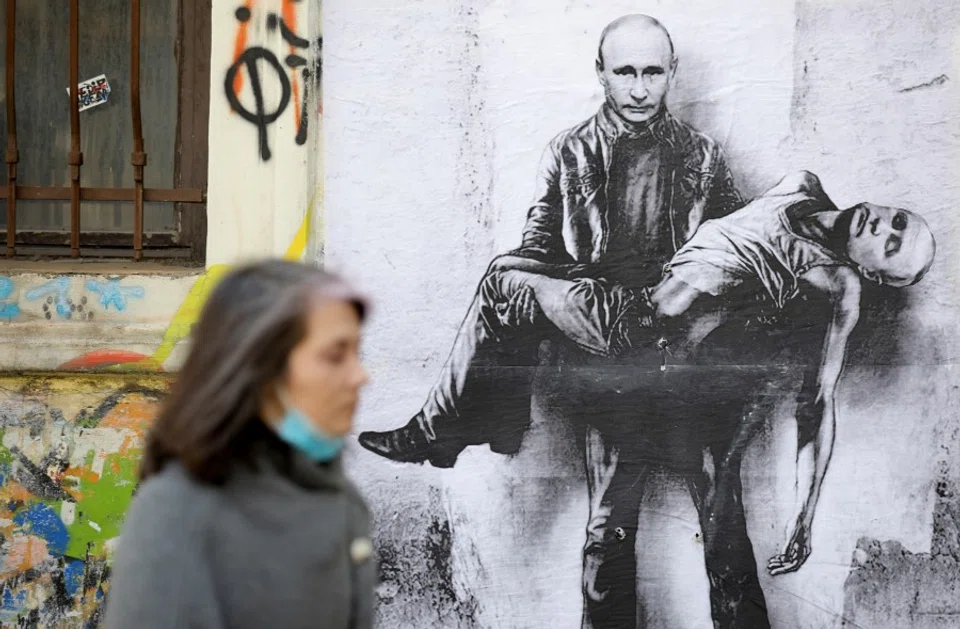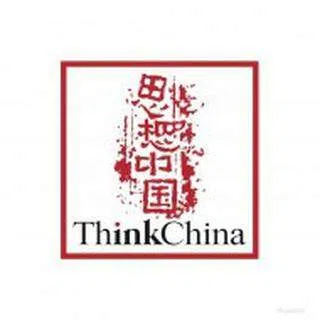Emperor Putin's missed opportunities and delusions
Russia's invasion of Ukraine shows Russian President Vladimir Putin's ambition and is seen as part of his grand strategy for restoring the nation's past glory. However, Chinese academic Chu Zhaogen notes that since the dissolution of the Soviet Union, Russia has missed opportunities for technological advancement and societal reform. Also, Putin's inner circle seems to perpetuate his delusion of Russia's situation and military capabilities. China has lessons to take from all of this.

For years, Russian President Vladimir Putin has been seen as a top strategist, earning him the moniker "Emperor Putin" in China. Of course, Putin is not undeserving of his reputation. He is a world leader bursting with charisma, exhibiting impressive political savviness, and is shrewd at pursuing world power status through diplomatic means. He is also unafraid to use the military power that was once Russia's pride, in the naked pursuit of national interests.
Putin's strategic prowess
Over the past 20 years, Putin has seized and made deft use of every opportunity afforded by the US's plight. In August 2008, Russia started the "five-day war" with Georgia, at a time when the US was dealing with the subprime mortgage crisis while being mired in war with Iraq. In 2014, Russia annexed Crimea, capitalising on the Obama administration's inability to handle the chaos of the Arab Spring in the Middle East, and the strong rise of Islamic State of Iraq and Syria (ISIS) after pulling its troops out of Iraq.
Putin's ability to strategise and seize opportunities pushed his approval ratings up to 90% at one point. After annexing Crimea, Russia faced strong sanctions from the West. Nevertheless, on 30 September 2015, Putin surprisingly sent troops to Syria in support of President Bashar al-Assad. Through a series of intrigues, he held on to Syria as Russia's only strategic point in the Mediterranean, and expanded Russia's strength and influence back into the Middle East. At the same time, the move forced the US and Europe to ease the pressure on Russia over the Ukraine issue.
Similarly, the current invasion of Ukraine seizes on a rare strategic opportunity - the US army has lost the 20-year war in Afghanistan and pulled out of the country; the US has been heavily hit by the Covid-19 pandemic, with the world's highest number of infections and deaths; and the US is extremely divided and politically polarised. With the US severely weakened and the mainstreaming of anti-war sentiment, it is the easiest and best time for Russia to fulfil its strategic objectives.
There is no doubt that Emperor Putin will meet his Waterloo and wreak disaster on Russia's next generation or generations.

Russia's weakness
However, morally speaking, Putin's sudden invasion of Ukraine under the pretext of a "special military operation" is a serious infringement of the sovereignty and territorial integrity of another country, as well as a crude violation of the basic principles of the UN Charter, and is even more deplorable than the unilateralism and great power politics of the US.
More importantly, the invasion of Ukraine goes against the trend of the times. No matter how the Russia-Ukraine war develops in the short term, rational observation and objective assessment will make clear how it will ultimately end.
There is no doubt that Emperor Putin will meet his Waterloo and wreak disaster on Russia's next generation or generations. And these deep lessons also offer important insights for China.
Lesson one: a brilliant strategy and planning do not make up for insufficient strength.
As of 2020, Russia's GDP is 11th in the world, equivalent to just 7% of the US's GDP and 10% of China's - even lower than that of Jiangsu or Guangdong - and is highly dependent on the price and export of resources. Russia's military expenditure is the eighth highest in the world, equivalent to 6.4% of the US and 20% of China. Furthermore, Russia ranks 47th on the Global Innovation Index.
Russia's insufficient strength has seriously hampered Putin's ambitions, and not even brilliant strategic planning or deft diplomacy can make up for this inherent and fundamental shortcoming.
All of this also determines and limits the depths and heights of China-Russia strategic cooperation. Furthermore, as the China-Russia "no limits" relations and cooperation is based on not targeting a third party, Putin's error in starting an invasive war means that China would not want to be implicated either by bearing the price or taking the blame for Russia's mistake.
Lesson two: Russia has not learned its lesson from the dissolution of the Soviet Union, and has missed multiple opportunities for a technological revolution.

After World War II, due to the Cold War and its tussle with the US for dominance, the Soviet Union made the arms race and the defence industry its priority. It missed the opportunity to take advantage of the third industrial revolution (digital revolution) and seize the high ground for scientific and technological development. Hence, it lagged far behind the US in terms of national strength, scientific and technological research, and standard of living. In the end, the Soviet Union lost out in its tussle with the US, without even putting up a good fight.
Besides its military industry, Russia has not come up with solid technology or products to show the world - it has lost out again in the fourth industrial revolution.
After Putin took office, the eight years from 2000 to 2007 saw an economic boom for Russia, whereby its GDP grew by an annual average rate of 6.9%, outperforming the global average. However, after the Russia-Georgia war in 2008, Russia increased its military spending substantially by 27%. Subsequently, Russia's economy contracted by 7.9%, the first negative growth since 2000. Meanwhile, 70% of its GDP growth was driven by elevated oil prices rather than technological innovation.
Over the next 12 years, Russia's GDP growth remained low at around 1%, far lower than the 3.2% average in the world economy. Only 5% of Russian companies are considered innovative enterprises, and only about 5% of products are innovative products. Besides its military industry, Russia has not come up with solid technology or products to show the world - it has lost out again in the fourth industrial revolution.
The fact that Russia has been left behind again by the new wave of technological revolution is evidenced in the current war. Russian troops are sorely lacking when it comes to hi-tech combat capabilities. Not only is it still using old armoured vehicles from some decades ago, but the Russian army also does not demonstrate an obvious advantage in electronic and cyber warfare. It was unable to disable the Ukrainian army's C4ISR (Command, Control, Communications, Computers, Intelligence, Surveillance and Reconnaissance) system, air defence system, and air force in the first wave of attacks.
Putin's inner circle of yes-men
Lesson three: Russia has missed the window for change and reforms.
Putin has been in office for 20 years. At first, he had the ability and the opportunity to carry out deeper reforms in Russia, but even as he hit out at the old oligarchy, he was supporting his own new oligarchy. Nothing has really changed, as an oligarchy continues to lead and dominate. There is no respect for humanity or protection of knowledge and property, much less keeping up with the times and the progress of civilisation.
Also, given Putin's long reign, he has formed an inner circle of hardline sycophants centred around the intelligence system of the former KGB.

Also, given Putin's long reign, he has formed an inner circle of hardline sycophants centred around the intelligence system of the former KGB. For example, at a meeting of the Russian Federation Security Council on 21 February, Putin asked the director of the Foreign Intelligence Service Sergei Naryshkin whether he supported recognising the independence of the Donetsk and Lugansk regions. In front of the commanding figure of Putin, Naryshkin was tongue-tied and hesitant, fearful of saying the wrong thing.
Such a team would not be able to tell Putin the actual situation in Russia or the real combat capabilities of the Russian army, much less stop him from starting an inappropriate war or even a nuclear war.
China needs to reflect and take lessons from this, and grasp the current opportunity to implement comprehensive and deep reforms, as well as to promptly push for modernisation of governance. China cannot afford these disruptive mistakes.
Related: Are Putin and Xi Jinping forging a new chapter in international relations? | Lessons from Ukraine: Russia might fall into decline by going against global sentiment | Russia-Ukraine crisis: Can Russian aggression bring back the former glory of the Soviet Union? | Extension of China-Russia friendship treaty does not mean ties are solid | Russia-China alliance: 'No limits' does not mean 'no bottom line'



![[Photos] Fact versus fiction: The portrayal of WWII anti-Japanese martyrs in Taiwan](https://cassette.sphdigital.com.sg/image/thinkchina/3494f8bd481870f7c65b881fd21a3fd733f573f23232376e39c532a2c7593cbc)

